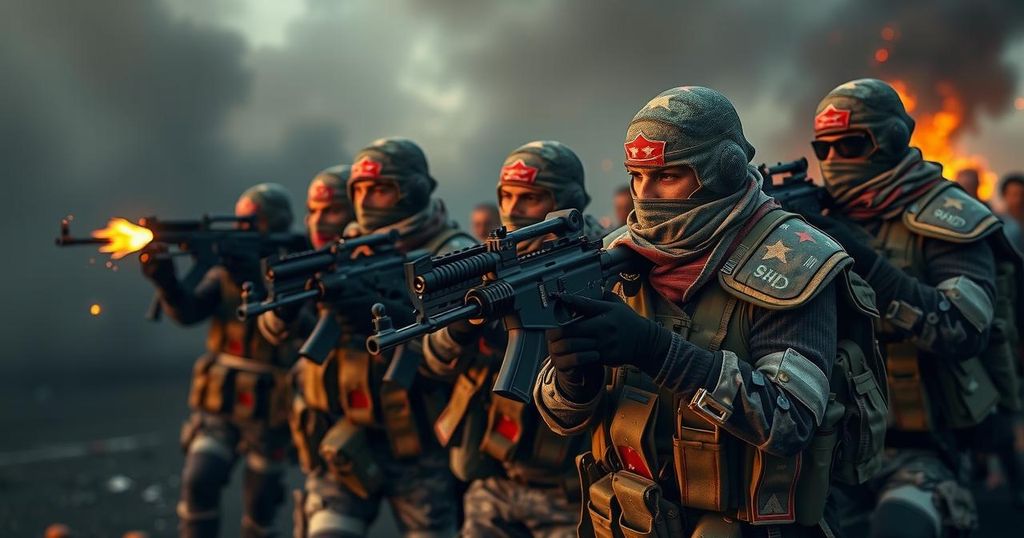Amid weakened support from allies, Syrian rebels have taken control of Aleppo, shifting the balance of power against President Assad. This offensive capitalizes on vulnerabilities faced by Assad’s regime due to external conflicts involving Iran, Hezbollah, and Russia. The landscape of the Syrian civil war is rapidly changing as rebel factions exploit these shifts to solidify their positions.
In a significant shift within the Syrian civil war, opposition forces have seized upon the diminishing support for President Bashar al-Assad from his principal allies—Iran, Hezbollah, and Russia. With these allies now distracted or weakened by various external conflicts, notably Israel’s intensified engagement and the challenges facing Iran and Hezbollah, rebel groups have executed a surprise offensive, culminating in their reported capture of nearly all of Aleppo. This development not only highlights Assad’s reduced capacity to maintain control but also indicates the changing dynamics of power in the region.
For years, Assad’s regime relied heavily on military assistance from Iran, Hezbollah, and Russia to combat resistance forces. Yet, recent events have revealed critical vulnerabilities. For instance, Iranian forces have suffered significant setbacks due to Israeli airstrikes and losses on the battlefield, while Hezbollah is engaged in protracted conflict with Israel. Moreover, Russia, despite providing some military support, has been preoccupied with its ongoing military operations in Ukraine, diverting essential resources that previously bolstered Assad’s position.
The civil war in Syria, which ignited over a decade ago, has significantly transformed. As foreign allies shifted their focus, opposition fighters capitalized on Assad’s vulnerabilities, evident through their rapid territorial gains. Analysts have pointed to the apparent isolation of Assad, stating that the balance of power has fundamentally shifted in favor of the rebels, with statements such as “Israel has changed the balance of power in the region” underscoring the magnitude of this transition.
Crucially, changes in Turkish positioning along with successful training efforts by the rebels contributed to this newfound offensive capability. Following the recent conflicts in Israel and Hezbollah’s subsequent military engagements, the window for opposition forces to act became apparent. The rebels aim to exploit these geopolitical shifts while fortifying their own military readiness over recent months, leading to their decisive actions against Assad’s beleaguered forces.
The Syrian civil war has spanned over thirteen tumultuous years, beginning with peaceful protests that were met with severe governmental crackdowns. This conflict pitted Assad’s regime against various rebel factions, drawing in numerous regional and international players that provided military support and resources. The Allied forces of Iran, Hezbollah, and Russia played pivotal roles, enabling Assad to recover lost ground. However, recent military engagements and conflicts involving these allies have disrupted their support, effectively skewing the balance of power back towards the rebel factions, who have methodically prepared and executed their strategies during these lapses in support for Assad.
The recent advances by Syrian rebel factions signify a pivotal moment in the ongoing civil war, showcasing the adverse effects of declining support for Assad from his strategic allies, particularly as external conflicts distract and deplete their resources. This opportunity taken by opposition forces underscores both the shifting landscape of military engagements in the region and the vulnerabilities of the Assad regime. As the rebels continue to reassess operational strategies amidst these changes, the conflict is poised for further developments that could redefine territorial control and power dynamics in Syria.
Original Source: www.nytimes.com






